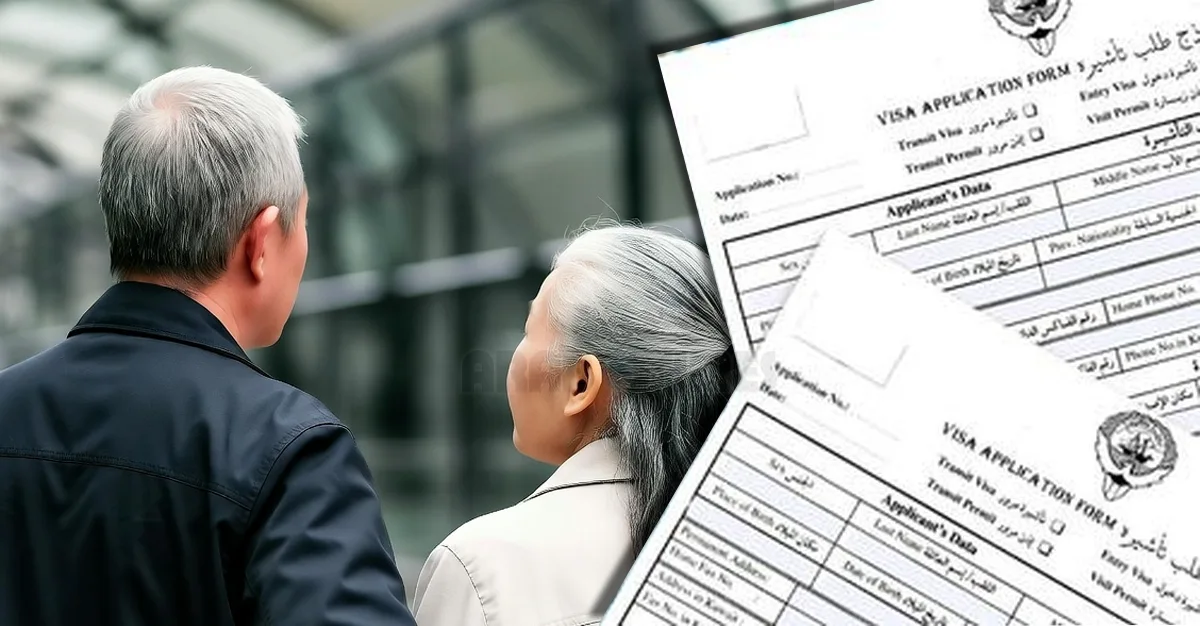15/10/2025
15/10/2025

KUWAIT CITY, Oct 15: Recently, Kuwait’s expatriate community has been rocked by sudden and unexpected family visit visa rejections for parents over the age of 60, prompting frustration and anxiety among families hoping to reunite with aging parents. The shift appears to have taken many by surprise, as dozens of long-planned applications have been rejected without explanation, leaving sponsors and their parents in limbo.
One expatriate, Kavita, shared her distress after reading an earlier response in the Arab Times about visa delays for the over-60 age group. She wrote: “Many of us had already applied online, informed our parents, and were eagerly preparing to welcome them to Kuwait. However, we are now facing unexpected online rejections, particularly for parents aged over 60 or 70 years of age”. She added that this sudden turn has brought “great disappointment and sadness” to families who had been looking forward to a long-awaited visit.
Another Arab Times reader, Mashariq, voiced similar concerns: “My friend’s parents’ visit visa was rejected purely because they are above 60 years. Is there a new rule now for parents above 60?”
Adding to the uncertainty, Munis claimed: “It’s true that the government has ‘closed’ visit visas for 60+ age. I visited the ministry twice in the past two days regarding my parents’ visa and was told the policy is now closed for that age group.”
These accounts point to a troubling perception: that the doors may have quietly shut for senior parents seeking to visit their children residing in Kuwait.
What the Official Policy Says and the Recent Reforms
To date, MOI has not publicly declared an age limit for parents applying for a family or visit visa in Kuwait. According to visa guidelines published by the Kuwait government, relatives wishing to pay a visit (including parents) may apply for a visit visa (family visit visa), subject to standard documentation and eligibility criteria.
That said, policy changes in recent months have included sweeping reforms to Kuwait’s family-visit visa scheme:
In August 2025, Kuwait abolished the minimum salary requirement for expatriates applying for family visit visas, removing a long-standing financial barrier.
The new rules also expanded the range of relatives eligible for family visas to include up to fourth-degree blood relatives and third-degree relations by marriage.
Restrictions on travel routes were also relaxed: visitors no longer need to travel via Kuwaiti national carriers, and land, sea, or other airlines may now be used
Despite these liberalizations, other conditions remain in place: a valid passport, proof of relationship (birth or marriage certificates), sponsor’s civil ID, and often a salary certificate from the sponsor are still required. The visit visa is typically valid for 30 days, and extensions or conversions to residence are generally not permitted.
On the question of age, visa analysts and immigration commentators suggest that age alone is not part of the official eligibility criteria. There is no mention in the publicly available rules about rejecting parents solely because they are 60+
Yet the experiences from the ground tell a different story: a wave of digital rejections and refusals for older parents suggest that there may be unofficial practices or internal screening guidelines being applied — perhaps driven by health, security, or administrative risk assessments.
Why This Matters Deeply for Expatriate Families
Most expatriates working in Kuwait fall into the 40–60 age band, meaning their parents are naturally in the 60+ range. Those children (many of them middle-aged professionals) often plan to host their elderly parents for short stays, to reconnect, provide family care, or offer medical support.
When visa rejections happen without explanation, it causes emotional distress, financial loss (for plane tickets, preparations, etc.), and even confusion about what rules truly apply. Many sponsors believe they abide by all published rules and yet see their applications denied.
Critically, the lack of clarity also allows speculation and anxiety to spread. Is there a secret “age ceiling”? Are consulates or digital systems applying new filters not been published to the public? Without transparency, families are left guessing.
For now, expatriate families remain in limbo. But as these concerns grow louder, there is hope that the Ministry of Interior or Kuwait’s immigration authorities will respond, perhaps clarifying or adjusting rules to avoid alienating a large and emotionally invested expat community in Kuwait.
Arab Times special report by JCF


